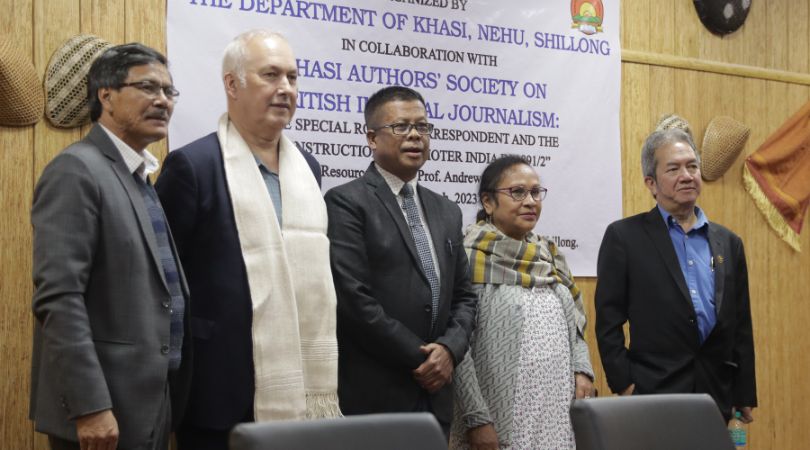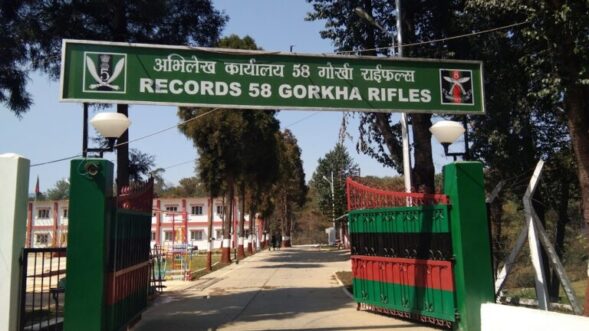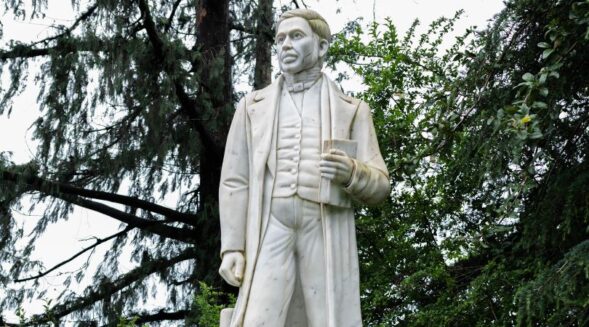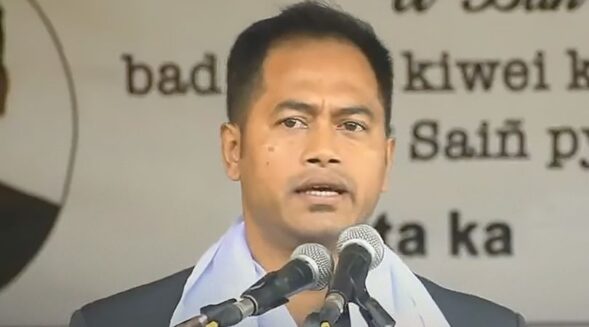
SHILLONG:
A special lecture was held today on ‘British Imperial Journalism: The special roving correspondent and the construction of romerter India in 1891/2’at U Kiang Nangbah guest house auditorium, NEHU, by the department of Khasi in collaboration with the Khasi Authors’ Society.
The special lecture started with the welcome address given by Wanstep Diengdoh, a member of Khasi Authors’ Society. Prof DLR Nonglaith chaired the occasion with Paul Lyngdoh (Minister In-charge Arts and Culture Department, Tourism department, etc.) as the chief guest.
Lyngdoh, during his lecture, when addressed by the honorific ‘shri’, stated, “If we are fighting to get the Khasi included in the 8th Schedule of the Indian constitution, start with the basics.”
Lyngdoh further said, “Inviting me as a chief guest is bit inappropriate, because I am not a guest. As a member of the Khasi Authors’ Society, I am more of a host then a guest. But since I also happen to be in the government, I think that is why I was invited to be a chief guest,” which broke the audience into laughter.
Lyngdoh shared his days as student in NEHU, and his love for poetry. In one anecdote, he remembered his meeting with former prime minister Atal Bihari Vajpayee who had said to him that one becomes an ex-prime minister at some point, but there has never been an ex-poet or ex-philosopher.
Prof. S Duncan, a guest of honour, added, “We are familiar with colonial history, colonial sociology, colonial anthropology – but colonial journalism is a new area which has brought to light many interesting façades of empire and empire building.”
He continued, “It is also interesting that many of these so-called journalists who were sent to different parts of the empire were not actually trained journalists. Many of them doubled as teachers, and many of them were actually paid or commissioned to travel to these remote parts of the empire in order to write about their experiences.”
“People were also interested to know how populations, peoples and communities to a particular hegemonic power actually lived or functioned, so it provide a very interesting perceptive to the people who were sitting at home in Great Britain,” he said, noting that many of the journalistic writings at the time also served as travelogues informing everyday Britons of the reach of their empire.
ANDREW J MAY, DESCENDENT OF REV. THOMAS JONES
Prof. Andrew J May of School of Historical and Philosophical Studies, Melbourne University, was also present at the lecture. May, it should be noted, is also the great, great grandson of Reverend Thomas Jones, considered the founding father of the Khasi alphabet and literature.
May’s visit has been highly anticipated by academia in Meghalaya. He spoke to The Meghalayan on the accuracy of historical accounts recorded by the British and Europeans.
“Most accounts are not in colonial archives. Most accounts are in the stories that people tell, and these are the things that need to be preserved, told, shared, circulated and documented […] they sit at the core of the nature of identity.”
Colonial records are often biased, he said, and served British ideology, although, as readers today, we can still separate the truth from fiction to some extent, and seek the voices of the local people. “But it’s the people’s history itself that is the core of the important documentation,” he added.
On his connection with the state and Khasi culture, May said, “I do feel incredibly connected coming here, and I keep coming back, because I can’t stay away. This place gives a sese of emotional and family connection that I have. I mentioned that my mother and grandmother both told me stories about this connection, and so I feel that it’s important for me to continue the family tradition of connection and conversation with this incredibly interconnected and complicated past, so I really do enjoy coming here.”






